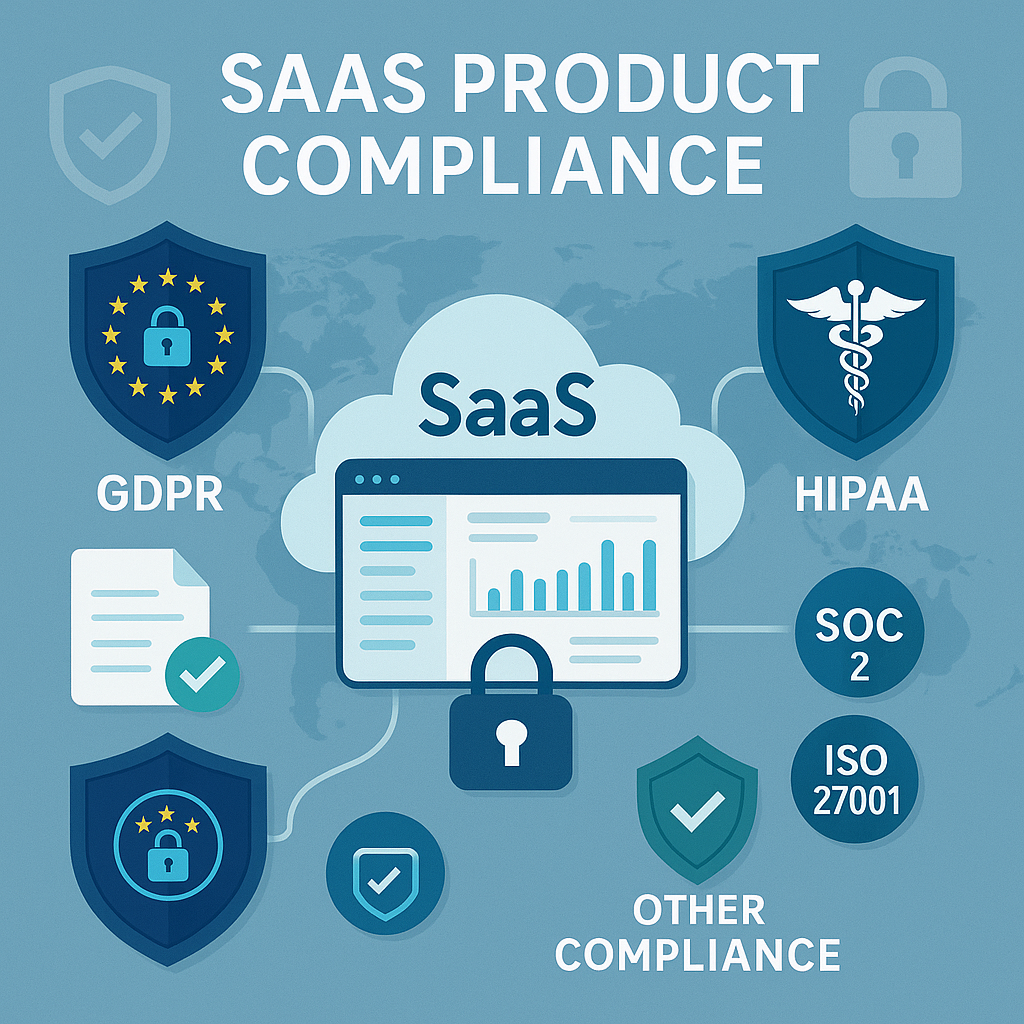When you run a SaaS (Software-as-a-Service) product, you deal with lots of user data. You should know that rules exist to guide you in handling this data . We call these rules compliance regulations. Some key ones include GDPR, HIPAA, and others based on your users’ location and your industry.
Let’s explain them in easy-to-understand terms.
What is GDPR and Why It Has an Impact?
GDPR means General Data Protection Regulation. The European Union created this privacy law, but it affects companies worldwide. GDPR applies to you if Europeans use your SaaS product even if your company isn’t in Europe.
You Need to Do These Things:
- Get consent: Tell users what data you’re gathering and get their okay first.
- Give users access to their info: People can ask to view, get a copy of, or erase the personal details you have about them.
- Notify about data leaks : If something goes wrong and data gets exposed, you must inform the authorities (and users) within 72 hours.
To sum up, GDPR gives users control over their personal data.
What is HIPAA and Who Needs It?
HIPAA is a U.S. law that protects sensitive health information. If hospitals, doctors, or anyone in healthcare uses your SaaS tool, and you handle patient info, you can’t ignore HIPAA.
What HIPAA Requires:
- Keep data safe: Put strong security measures in place to guard health records.
- Control access: people with permission should view or handle sensitive health info.
- Sign agreements: If you team up with healthcare firms, you need a special contract known as a BAA (Business Associate Agreement).
- Report breaches: Similar to GDPR, if data gets leaked, you must alert the right people .
HIPAA aims to maintain the privacy and security of medical information.
Other Rules You Should Be Aware Of
Apart from GDPR and HIPAA, SaaS businesses might need to comply with a few other laws and standards:
1. SOC 2
This isn’t a law, but a well-known security standard. It mainly applies to SaaS companies and cloud services. It aims to keep systems secure and dependable—for larger clients who value trust and openness.
2. CCPA (California Consumer Privacy Act)
If you have users in California, CCPA grants them rights such as knowing what data you gather choosing not to have their data sold, and requesting their data be erased.
3. PCI DSS
If your app accepts credit card payments, this standard helps you safeguard cardholder data and stop fraud. It’s essential for online payments.
4. FedRAMP
Thinking about working with U.S. government agencies? FedRAMP is a must. It sets the rules to ensure your cloud service meets the security standards for federal use.
Why SaaS Companies Need to Comply
You might ask—why does this matter so much? Here’s the deal:
- Stay out of legal hot water: Breaking these rules can result in hefty fines and lawsuits.
- Gain user confidence: People want to know you’ll keep their data safe. Following these rules proves you take privacy .
- Attract more customers: Big companies and international users often demand their vendors to comply before they’ll do business.
- Keep your product safe: These regulations push for better security practices, which helps protect your product overall.
How to Stay Compliant
Compliance isn’t a one-off task—you need to keep at it as your business expands. Here are some straightforward steps:
- Check your data and your handling methods often.
- Use encryption for sensitive info.
- Give your team basic privacy and security training.
- Pick secure cloud services that also meet compliance rules.
- Maintain records of who accessed what and when.
